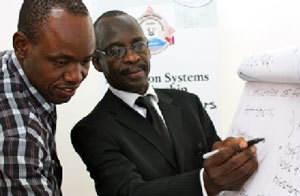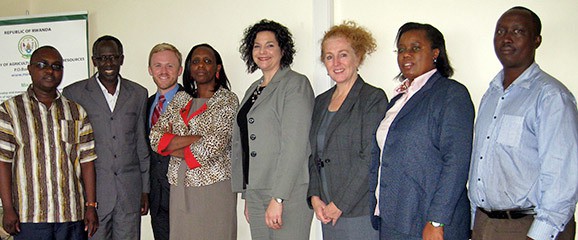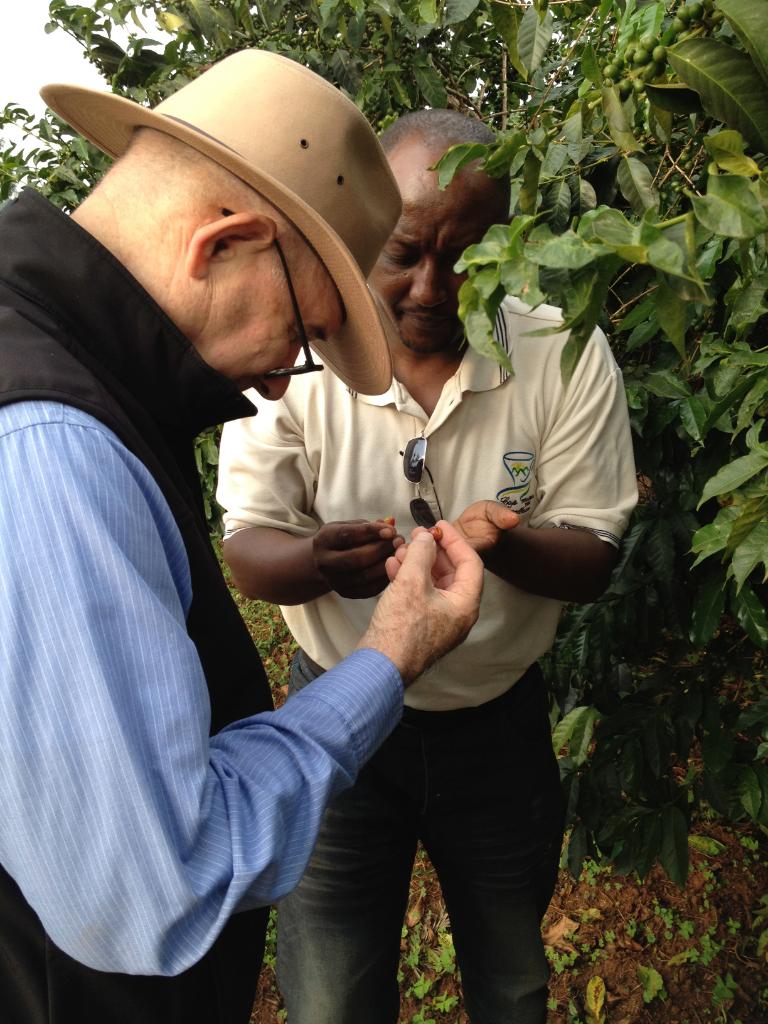GKI – UNESCO to Train Tanzania’s Next Generation of Innovation Leaders

Systems Leadership” training-of-trainers course conduct a practical exercise.
Collaborative innovation-a rich frontier of science, technology, and innovation (STI) for development-encompasses a variety of concepts and skills that, once mastered, can inspire real-world problem solving. Training in collaborative innovation helps individuals cut across sectors and disciplines. Central to the idea is teaching people-entrepreneurs, researchers, policymakers and others-how to use an array of tools to identify the resources and activate the networks needed to solve a specific challenge. Through our trainings, the Global Knowledge Initiative (GKI) invites individuals to see their world, not as a stagnant environment in which problems linger and resources go untapped, but as a dynamic innovation ecosystem in which they are empowered to pursue partnerships and explore solutions in new, exciting ways. The result: new innovations, ventures, businesses, and communities with hope.
With a goal of building a lasting collaborative innovation skills base in East Africa, UNESCO tapped GKI to develop a long-term “Innovation Systems Leadership” training-of-trainers program to be hosted at the Nelson Mandela African Institute of Science and Technology (NM-AIST) in Arusha, Tanzania. The Global Knowledge Initiative trained the first cohort of Tanzanian trainers on ten fundamental collaborative innovation skills blocks in August 2012 at NM-AIST. This work builds off the success of the first UNESCO-GKI training collaboration. That first training occurred in June 2011 when three Global Knowledge Initiative trainers delivered a customized one-week “Innovation Systems Leadership” skills intensive designed for a diverse group of Tanzanians at the University of Dar Es Salaam sponsored by UNESCO.
In January 2013, GKI returns to Tanzania to support the trainers as they deliver the fundamental collaborative innovation courses to local entrepreneurs hailing from Tanzania’s agriculture, mining, manufacturing, and other sectors. Subsequent trainings for policymakers and researchers lead by the Tanzanian trainers will follow throughout 2013 and beyond. UNESCO, GKI, and NM-AIST seek to use this training-of-trainers course as a vehicle for building the capacity of Tanzanian government, industry, civil society, and universities to utilize science, technology, and innovation as tools for national and regional development. Specifically, the partners aim to support the emergence of a Center of Excellence for Innovation Systems Leadership Training at NM-AIST over the next three years to ensure long-term viability and excellence of this capacity building effort.
The Global Knowledge Initiative took a global approach to designing the training of trainers course. The organization’s researchers consulted some 300 sources on innovation, entrepreneurship, research, design, policy, and collaboration. A small, elite, global team of advisors from Stanford University, University of Colorado, the private sector, and elsewhere provided insight and expertise. The Global Knowledge Initiative’s staff also scoured top-notch institutions’ teaching resources on innovation and entrepreneurship. From Harvard, the Massachusetts Institute of Technology, the National Collegiate Innovators and Inventors Alliance, innovation design firm IDEO, and elsewhere the team mined for content, filtering it against this design question: for a Tanzanian entrepreneur, researcher, or policymaker, would learning this [concept, skill, approach, etc.] accelerate the speed, quality, and/or impact of innovation? Answering this question was not merely a theoretical exercise, but a driver of GKI’s curriculum design process.
Building the capacity of innovation actors to put STI to work for local problem-solving and socioeconomic development represents a fundamental aspect of GKI’s mission. To date the Global Knowledge Initiative has trained researchers, innovators, policymakers, and entrepreneurs from 45 countries using user-relevant and experiential modules. The courses, customized and experiential in every instance, have targeted participants as diverse as Nigeria’s Director General of Research, Fulbright fellows in food security-related graduate, and entrepreneurs in Tanzania’s mobile phone sector (For more on our training program, see our website.

Contributors: Andrew Bergmanson, Amanda Rose, and Christina Golubski
Photo credit: Global Knowledge Initiative







